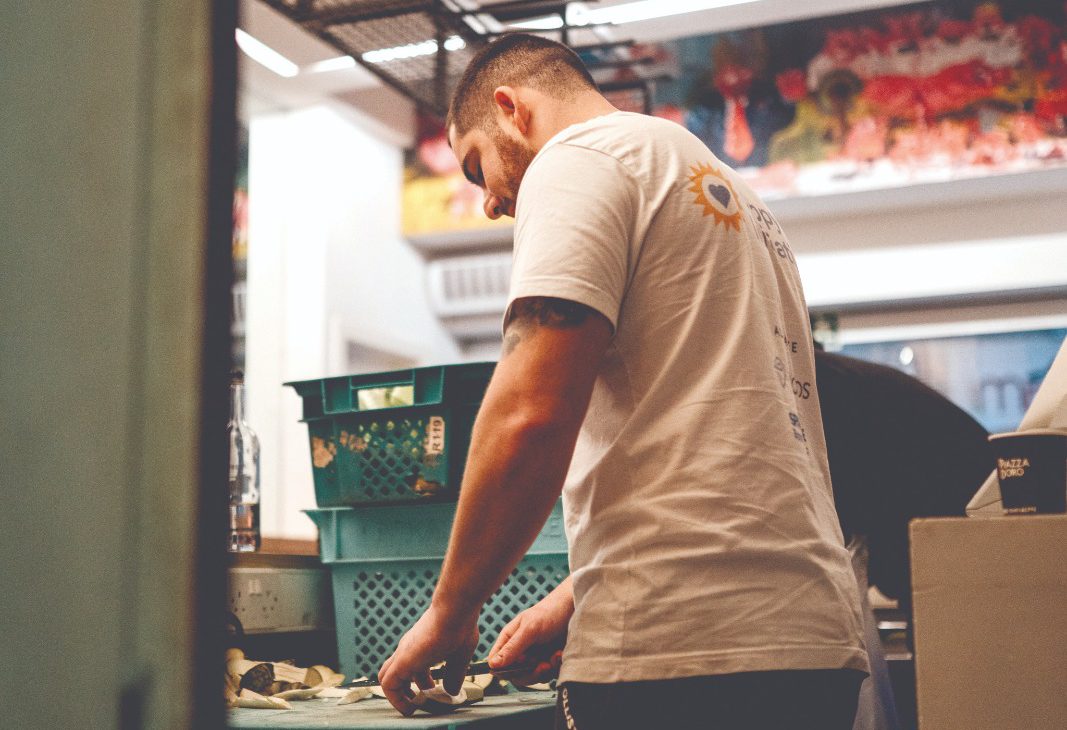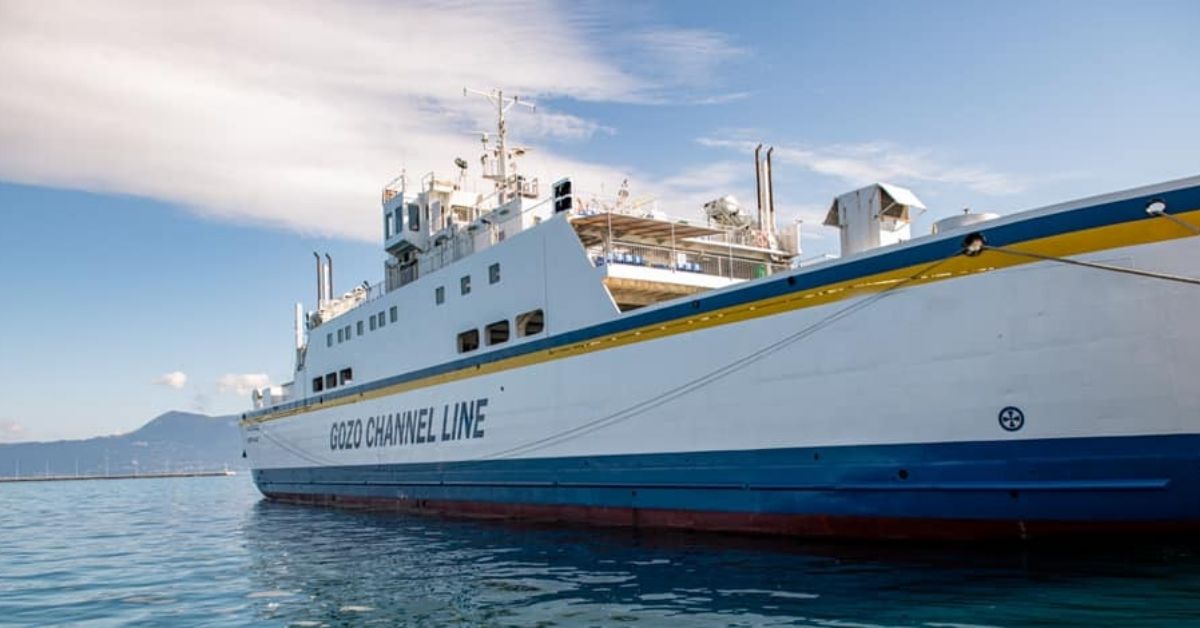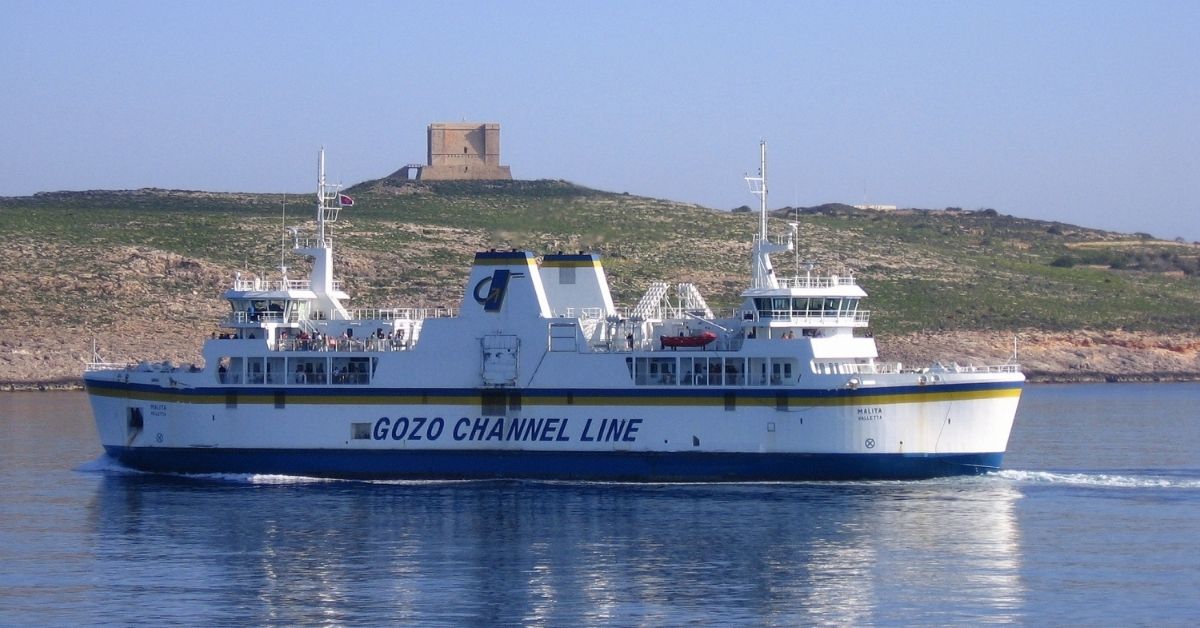At only 28 years old, young restaurateur Rafel Sammut had already cut his teeth running one Malta’s best-loved eateries – the Pulled Meat Company – and was building a solid reputation with this new outlet, Briju in Gzira, when the COVID-19 pandemic hit in early 2020.
“I was stuck at home, annoyed, with the kitchen closed and not knowing when the restrictions would end,” he tells me, as he sits in his restaurant, keeping an eye on preparations for the evening rush hour.
“It was at this time that I was approached and told of families in need, people who had lost their jobs because of the pandemic, and I thought: how can we help? We had chefs on the payroll, an empty kitchen, and we didn’t know how long the situation would last. We felt there was a cause, and we had all the resources in place – it made sense to use these,” Rafel recalls of the inception of the Victory Kitchen, which he runs together with Andrew Arrigo.
From the start, the demand was tremendous. “We went from serving 200 meals a week, at the very beginning of the pandemic, to 2,000 meals over the span of just two months,” he says. At its peak, and for the better part of the 15 months of the coronavirus crisis, the Victory Kitchen was serving 2,400 meals a week. This effort and compassion were given on a voluntary basis – “at the time, this was necessary, so the core team, including the chefs and our logistics partner, eCabs, provided the time and effort for free.”
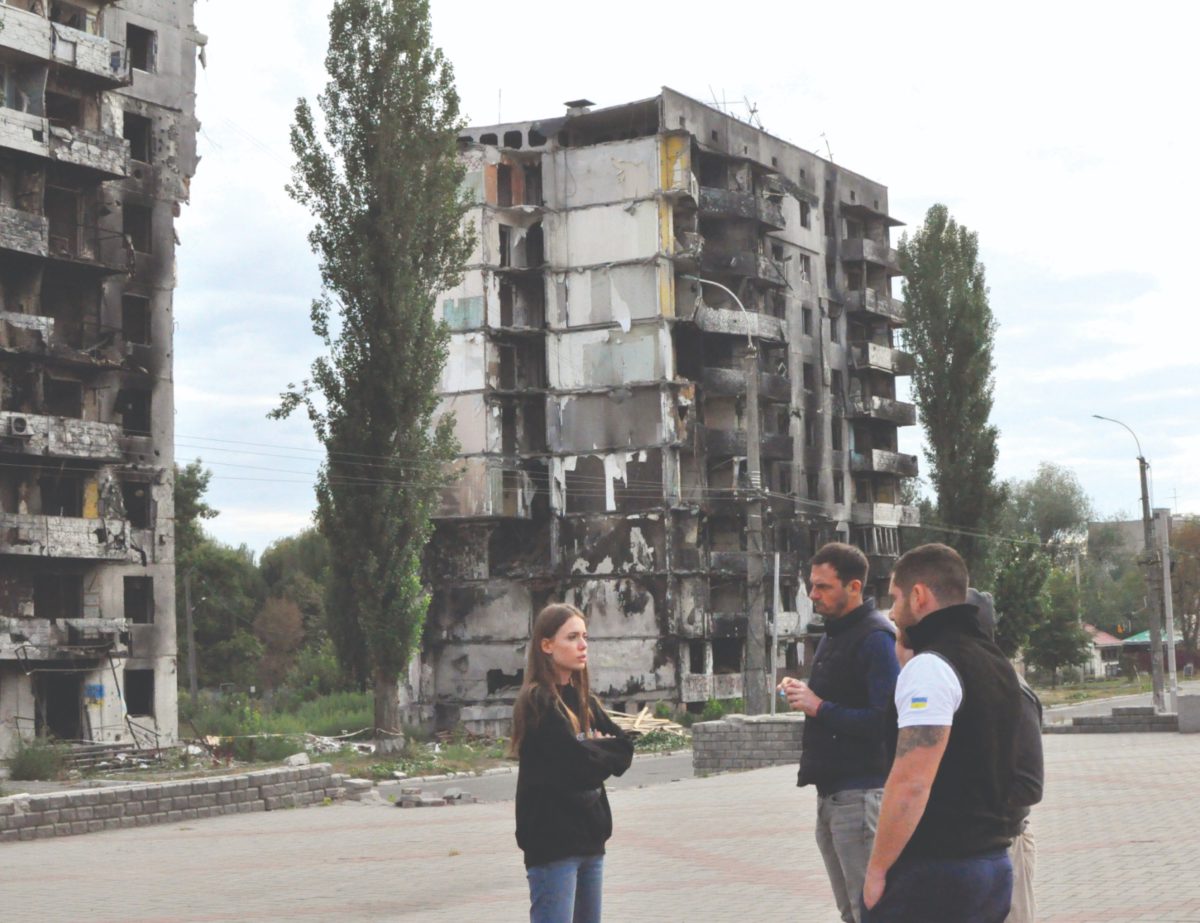
Today, despite the waning of the immediate crisis, the Victory Kitchen still serves 1,400 meals a week across the Maltese islands. “We know this number may increase over the next year as inflation soars, and with a possible economic recession around the corner. In fact, we are anticipating a rise in these numbers,” he says. Onboarding beneficiaries involves a process of vetting: “often we get contacted either directly by the family, or by an institute, a social worker or another NGO; if it’s the latter, then they would have already reviewed the situation of the applicants to determine what the necessities are; but, when we’re approached by individuals, we have to cross-check the information to make sure the resources are getting to those most in need,” he outlines.
In cases where the level of need cannot be immediately ascertained, “our motto is to not let anyone go hungry”, Rafel says, so food is sent out, as soon as it can be, until more information can be collected. “Sometimes, we have families who also need basic medication, or need help paying their heating or electricity bills. They may even need essential detergents and cleaning products, for instance. During the pandemic, we also organised a system whereby we collected second hand laptops, serviced them, and provided them to families whose kids needed them to attend school lessons and to socialise,” he states, confirming that the Victory Kitchen caters to a gamut of diverse difficult situations.
“We may provide one meal a day or two. Sometimes, we only help people for specific spans of time. For example, pensioners often have just enough money to get through three weeks of the month but cannot make their funds stretch to the fourth. In these cases, we step in to help. So, it all boils down to the individual case and, here, we’re helped immensely by the social workers and the NGOs we trust to give us a complete picture,” Rafel asserts.
Due to the complexity of the operation, it has more resources allocated to it than it did in 2020 – “there are three people working on it, full-time, with one person simply responsible for delivering food to households. But, because we now have more dependencies, Andrew and I have more commitment and responsibilities. And, if the funds and resources dry out, we have to see how we’re going to continue and move forward,” he says, explaining that the operation has a substantial yearly expenditure.
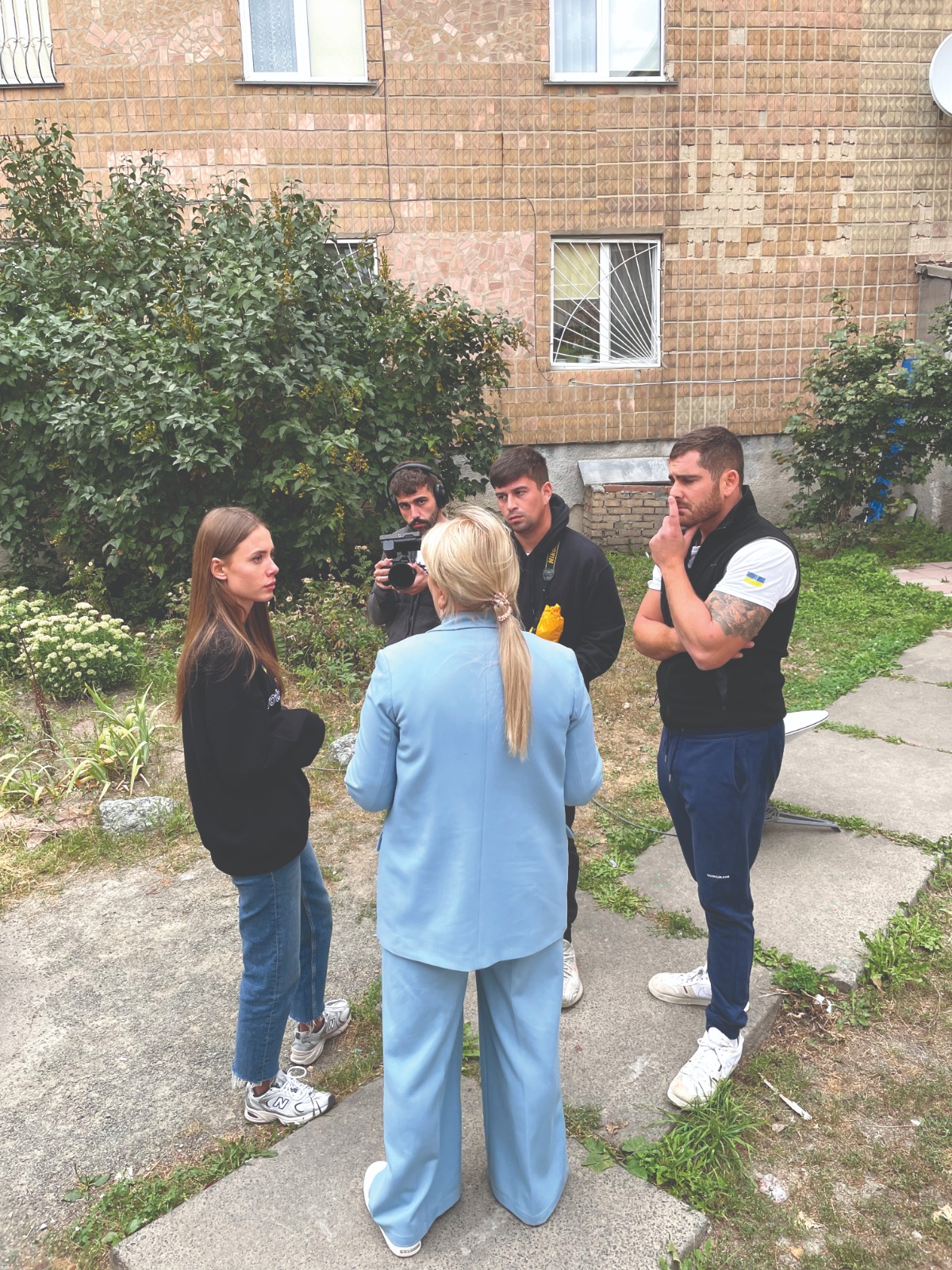
“Andrew and I still give our time voluntarily – and we’re in a position where, for now, we can. We each have our full-time jobs, but we make sure to dedicate a few hours a week to sorting out the logistics, planning the next steps and fundraising,” he says. The Victory Kitchen has, so far, received zero state funding, which has put pressure on both Rafel and Andrew to create initiatives to raise the necessary moneys required to keep the operation going.
Sometimes it’s stressful, and I worry about getting into debt, since we also have our businesses to run, but we’ve managed to push through,” he smiles, explaining that they benefit from the generous donation of enterprises such as Happy Initiative – an international NGO which Rafel also forms part of – as well as the Alfred Mizzi Foundation, Izola Bank, Remax and Friends Foundation, as well as Deloitte Malta. “We’re lucky to have this support, but the small donations also make a real difference,” he asserts, pointing to the Christmas season as a good chance to show a spirit of generosity.
Fundraising events have also been organised, and these often put both Rafel and Andrew to the test. “We’ve done long swims to raise money for our initiatives,” he describes, swiftly adding “we’re not Olympic athletes or anything.” Despite his self-deprecation, the efforts invested in these activities are substantial. “Once a year we put ourselves through a challenge – this year, we swam 70km without stopping, and we managed to raise almost €120,000. Last year, we swam around Gozo, which took us 14 hours, and we managed to raise €60,000. Every year, there’s more momentum and the push has started to pay off,” he smiles.
More recently, the team organised a grand event in London. “We felt we needed to raise some money for the needy in Ukraine,” Rafel explains. The project involved taking 18 Maltese chefs to the UK capital to cook a Michelin-level dinner for 105 guests at the Corinthia Ballroom. “We sold tables and we had an auction, so there were a lot of logistics to organise,” he attests, saying that the event was a success, with much-needed funds raised. “We are always growing and learning, so hopefully, we’ll raise more money next time.”
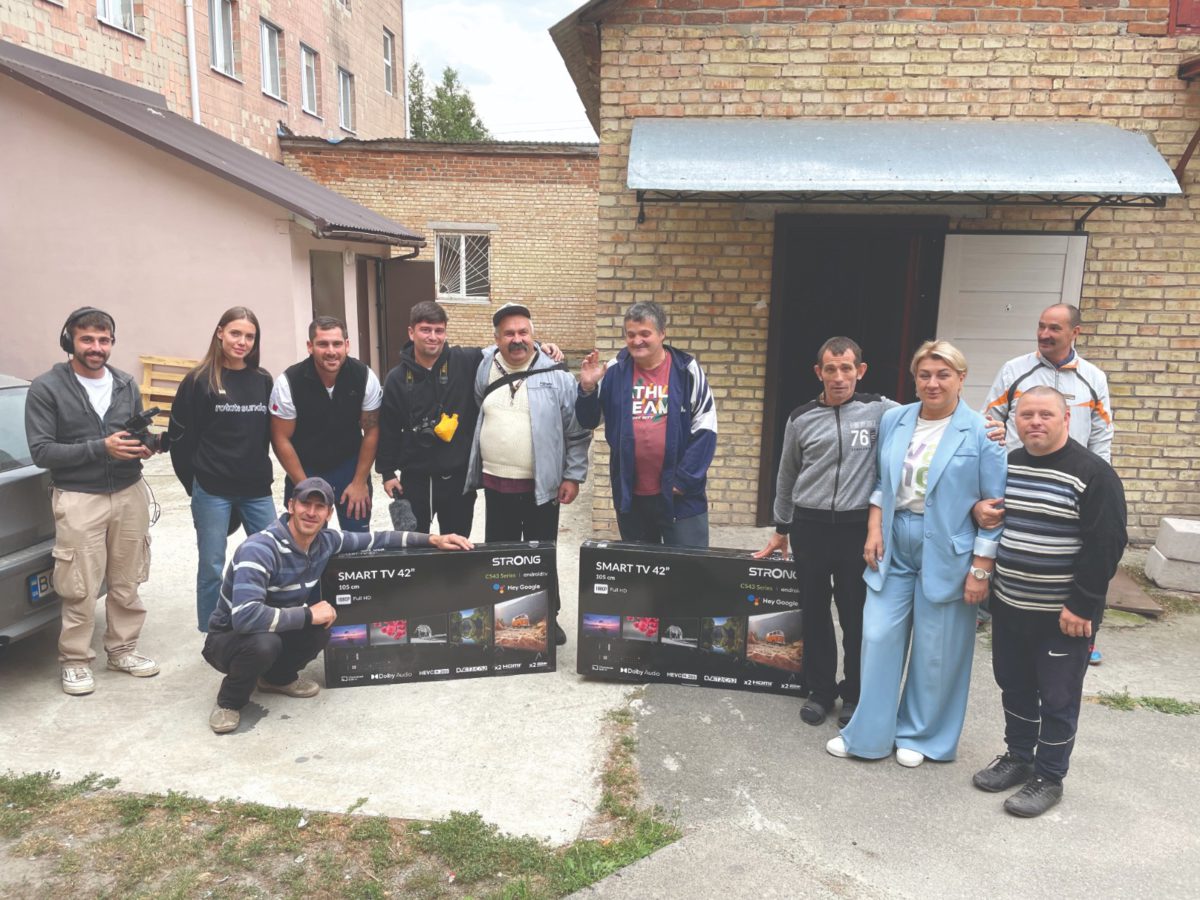
This is testament to Rafel’s commitment to providing support within a wider scope than the Victory Kitchen encompasses. “The NGO Happy Initiative, for instance, tries to help anyone who needs it. We pump our efforts into helping charities overseas – we’ve helped a number of school orphanages in Africa, as well as homeless shelters in Germany. And lately, we’ve also been involved in helping the needy in Ukraine.” Indeed, Rafel describes his visit to the country a few weeks ago as transformative – “in just two days, I fell in love. Now, when I see something happening in the news, I feel it’s happening here. Unfortunately, the war doesn’t seem to be coming to an end; rather, it feels as if it’s escalating.”
In the context of a fraught world, such commitment to social responsibility is, for Rafel, the underpinning to a ‘good’ life. “I’m a strong believer in karma, and I believe you receive the energy you put out in the world. However, showing compassion is more than that: it’s a powerful feeling which gives you as much satisfaction as you invest in it. If you get a parent calling for help because their child needs treatment – and you manage to acquire this for them – you’ve made a life-changing difference in their life; you cannot put this feeling into words,” he says.
Over and above the personal connections made, and the meaningfulness implicit in the act of giving, Rafel underscores the benefits businesses and entrepreneurs would see if they had to centre such social responsibility at the core of their activities. “I have, personally, learnt a lot from running the charity and this has spilt over into my businesses. I have learnt how to restructure the companies, in ways in which they are, now, easier to run and more profitable. Working within the NGOs has brought a lot of perspective.”
Indeed, looking ahead to 2023, Rafel concedes to being at a bit of a crossroads. “We have applied for a permit to convert an abandoned garage into our new kitchen, and there’s a high chance we’re not going to get it. In that eventuality, we have to rethink the entire year,” he says, explaining that, currently, they rely on the generosity of Vecchia Napoli at the Salini Hotel, which has lent out part of their premises to prepare the food for the needy. “We’ve worked with them for the better part of this year, but now it’s time to move. And, if we get the kitchen in place, we can hire another person and grow to meet the surging demand, spurred by the economic challenges we see happening around us,” he says.
In the meantime, as Rafel and Andrew wait for news, they continue the good work they set out to do more than two years ago. “We just focus on coming up with solutions, contacting the right people to meet the needs which are brought to our attention. Now, we have enlarged our network, so we know who to call, and we’ve become well-versed in being the middleman, so to speak. After all, it’s about the heart and effort you put in – that’s enough to make a difference.”
If you want to assist Victory Kitchen, in any way you can, email Rafel on rafsammut@gmail.com
This feature was first carried in the Business Now Winter 2022/2023 edition. Business Now magazine is the sister brand to BusinessNow.mt, both produced by Content House Group
‘An important step’: Gozo associations welcome larger ferry fleet
Gozo Tourism Association says next step must be the development of larger berths at Mġarr and Ċirkewwa
Gozo Channel to get two new ferries and dedicated cargo vessel
The new ferries are set to start operating in 2029
Malta’s Office for Competition joins EU initiative on digital enforcement
The Office for Competition is set to enhance its technical, legal and analytical expertise


